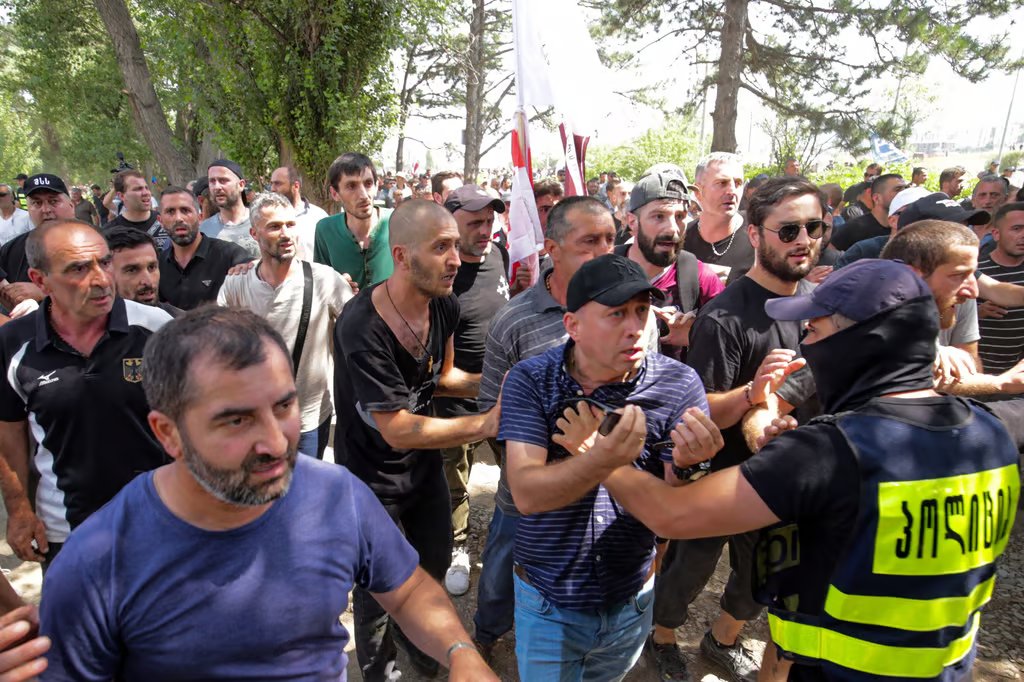A gay pride festival in Tbilisi, Georgia, faced a forceful disruption as around 2,000 anti-LGBT protesters, including right-wing individuals and Orthodox Christian clergy, stormed the event on Saturday. The protesters engaged in scuffles with the police, invaded the stage, and burned rainbow flags, ultimately leading to the cancellation of the festival. The organizers and Georgia’s president pointed to prior instances of anti-LGBT hate speech as a cause for the disturbance, criticizing the police for their failure to protect the festival-goers. Homophobia remains a prevalent issue in Georgia, contributing to the hostility faced by the LGBT community.
Despite the large-scale disruption, Interior Minister Alexander Darakhvelidze argued that the vast venue made it challenging to ensure security. He stated that although the protesters managed to find alternative ways to enter the event area, the participants and organizers were successfully evacuated without harm. This incident follows a similar disruption of a Pride festival in Tbilisi in 2021, where far-right protesters attacked journalists and LGBT activists. The organizer of the 2023 Pride event claimed that far-right groups had actively incited violence, urging authorities to investigate, but no action was taken.
Critics have accused the ruling Georgian Dream party of aligning with Moscow, despite Georgia’s longstanding aspiration to join the EU. In March, mass protests erupted over a proposed law resembling Russian legislation that would label non-governmental and media organizations receiving over 20% of their funding from abroad as “foreign agents.” The government eventually withdrew the bill after clashes with the police outside the parliament. The disrupted Pride festival and ongoing challenges faced by the LGBT community highlight the persisting struggle for acceptance and equality in Georgia.


















